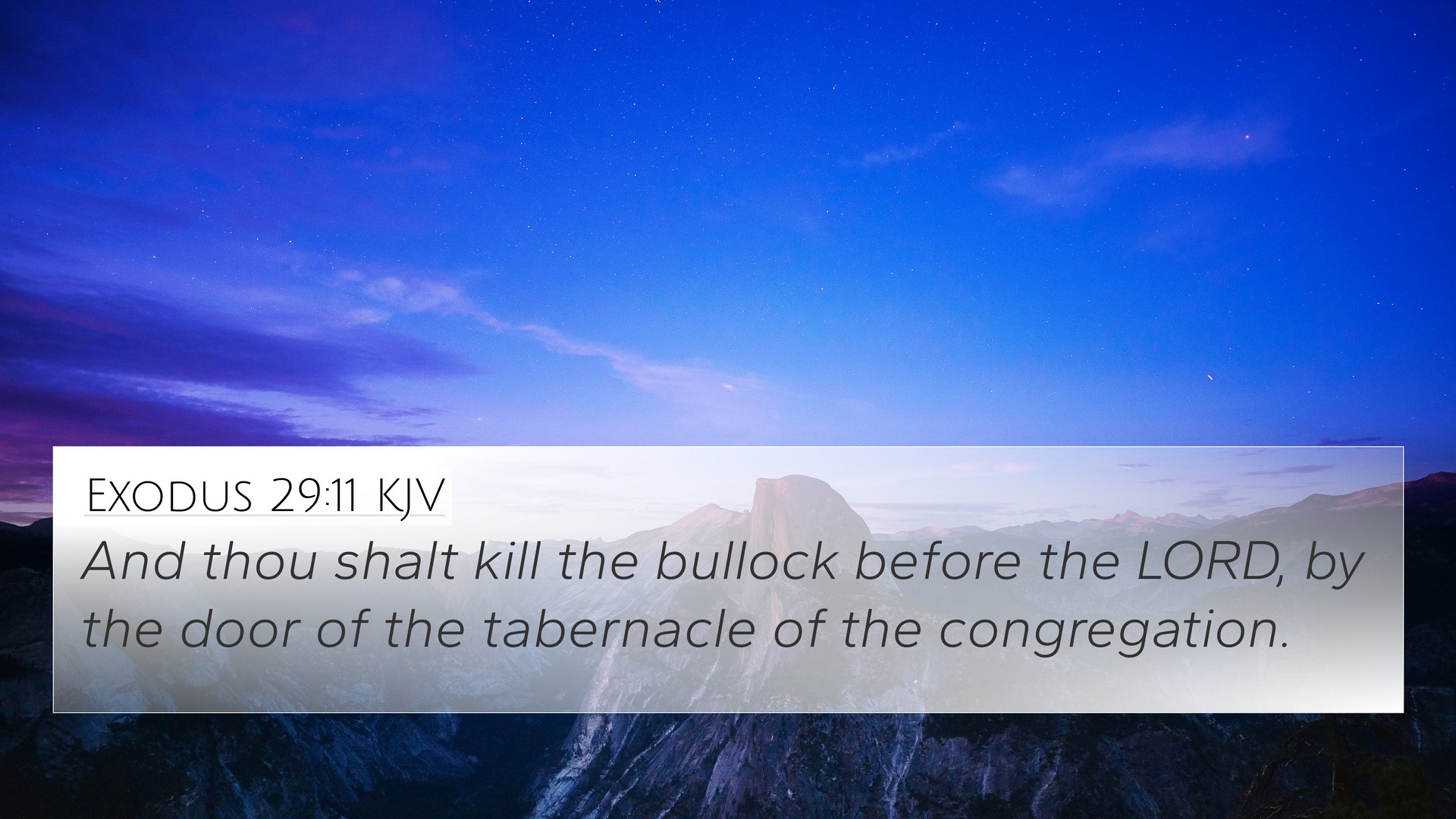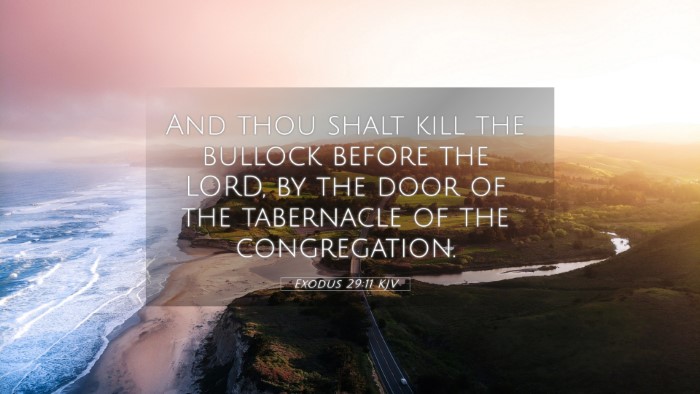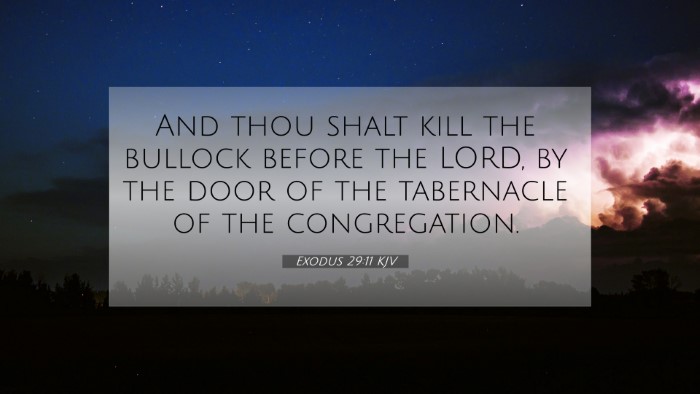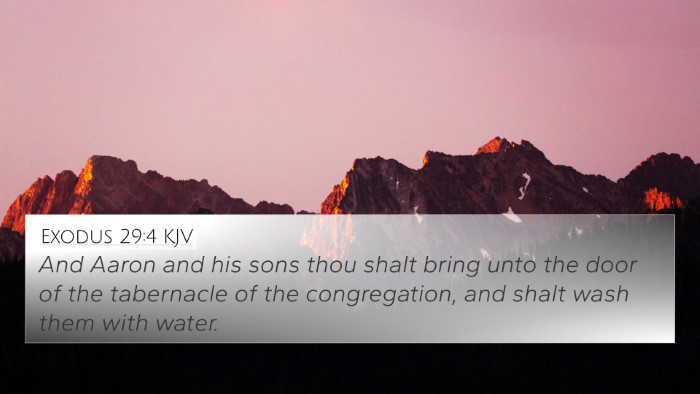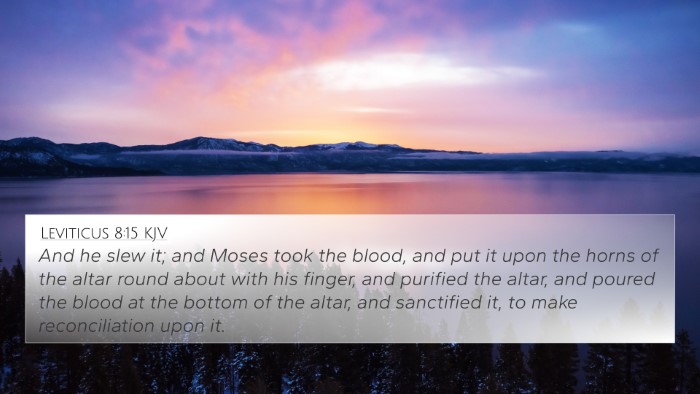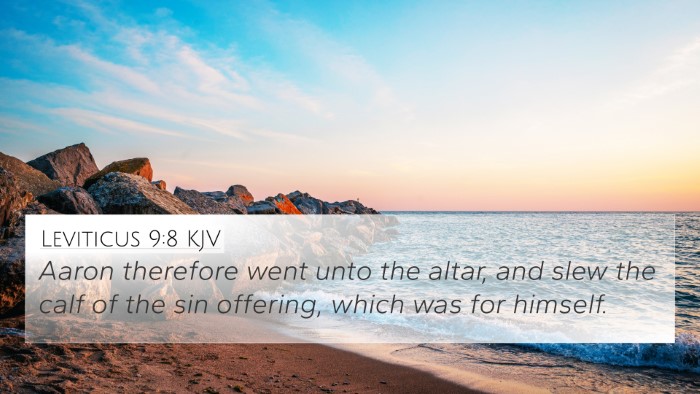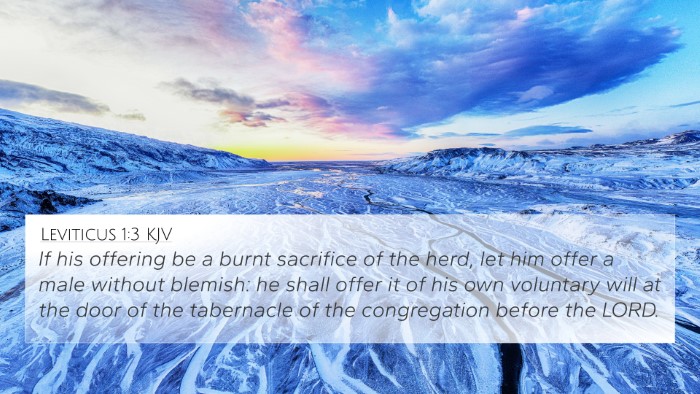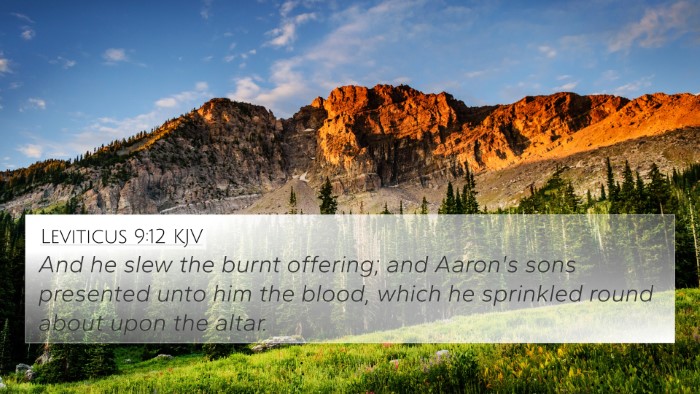Understanding Exodus 29:11
Exodus 29:11 states: "And thou shalt kill the bullock before the Lord, by the door of the tabernacle of the congregation." This directive is part of the consecration ceremony for Aaron and his sons as the priests of the Israelite community. Below, we summarize insights from various public domain commentaries regarding the meaning and significance of this verse.
Commentary Insights
Matthew Henry's Commentary
Matthew Henry emphasizes the importance of the sacrifices in the ancient Israelite worship system. He notes that the killing of the bullock represents a critical step in the atonement process, linking it to the themes of sacrifice and consecration. The act of killing the bullock at the tabernacle's door is symbolic of presenting the offering directly before God, underlining the seriousness of the sin and the necessity of sacrifice for atonement.
Albert Barnes' Notes on the Bible
Albert Barnes provides a detailed explanation of the procedure laid out in Exodus 29:11. He describes the significance of executing the sacrifice at the entrance of the tabernacle, reflecting the access people have to God through atonement. Barnes highlights how the physical location of the sacrifice signifies the seriousness of worship and God's holiness, reminding the priests that their approach to God must be done with reverence and respect.
Adam Clarke's Commentary
Adam Clarke discusses the ritual's context within the larger framework of Israelite worship. He points out that the bullock symbolizes the sin of the people, and its sacrifice signifies the need for purification. Clarke also emphasizes the communal nature of the sacrifice, noting that it serves as a means for the entire congregation to be brought into a right relationship with God through the priests' intercession.
Thematic Connections and Cross-References
The verse connects with several themes found throughout Scripture. Understanding these connections enhances the interpretation of Exodus 29:11.
- Hebrews 9:22 - "And almost all things are by the law purged with blood; and without shedding of blood is no remission." This verse underscores the necessity of blood sacrifice for atonement.
- Leviticus 4:3 - "If the anointed priest sin, bringing guilt on the people, then let him offer to the Lord for his sin which he has sinned a young bull without blemish as a sin offering." Similarity in the requirement for sacrifices by priests indicates the continuity in atonement practices.
- Exodus 24:5 - "And he sent young men of the children of Israel, which offered burnt offerings, and sacrificed peace offerings of oxen unto the Lord." This reflects the sacrificial system's establishment and importance in covenanting with God.
- Romans 12:1 - "I beseech you therefore, brethren, by the mercies of God, that ye present your bodies a living sacrifice, holy, acceptable unto God, which is your reasonable service." A thematic shift to the New Testament illustrating how sacrifices transition into spiritual living.
- 1 Peter 2:5 - "Ye also, as lively stones, are built up a spiritual house, an holy priesthood, to offer up spiritual sacrifices, acceptable to God by Jesus Christ." Indicates the evolution of the priesthood and sacrifice in Christian theology.
- Isaiah 53:7 - "He was oppressed, and he was afflicted, yet he opened not his mouth: he is brought as a lamb to the slaughter, and as a sheep before her shearers is dumb, so he openeth not his mouth." Reflects on the ultimate sacrificial offering in Jesus Christ.
- John 1:29 - "The next day John seeth Jesus coming unto him, and saith, Behold the Lamb of God, which taketh away the sin of the world!" A direct reference to Jesus fulfilling the sacrificial system.
Importance of Sacrifice in Worship
The act of sacrificing the bullock at the door of the tabernacle symbolizes the need for forgiveness and the seriousness of sin in the life of the congregation. It signifies how both the priest and the people needed redemption. This theme reverberates throughout the Old and New Testaments, reflecting God's enduring plan for atonement and communion between Him and His people.
Applications for Today's Believers
For modern Christians, understanding Exodus 29:11 encourages self-examination regarding their approach to worship and holiness. The verse reminds believers that access to God requires sincerity, humility, and acknowledgment of sinfulness, translated into spiritual practices today, such as confession and repentance.
Finding Cross-References in the Bible
Utilizing tools such as a Bible concordance or a cross-reference Bible study guide can help in identifying connections between this verse and other scriptures. This can enrich one’s study and understanding of the intricate web of biblical narratives and themes.
